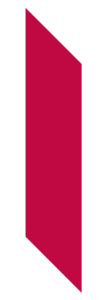Last summer, I got the chance to get honors credit for an
academic internship I did with Site Savvy, a web design business in my hometown
of Yakima, WA. Web design is a broader field than most people realize, and so, as
I went into my very first internship, I didn’t really know what to expect.
I’m not sure my employers did, either. See, I’m pursuing a
double-major in Human-Computer Interactions and English: Writing Studies, which
means that my degree takes me all over campus, from painting color charts in
the art building and reading poetry in Westminster to writing algorithms and
developing software in my computer science classes. So it shouldn’t have been a
surprise that, when I showed up to my first day of work, excited and more than
a little anxious, one of their first questions was: “What do you want to
get out of this experience?”
To be honest, I didn’t really know. I had spent a lot of
time in the HN 200 seminar the previous spring thinking about ways I could bring
together the arts, humanities, and STEM into a meaningful profession, but it
was still hard to picture what that might look like out in the real world. And
while I was confident that the intersection of English, art, and computer
science was becoming an increasingly relevant space in our ever-digitized world,
I was still worried that my divided interests might make me a “jack of all
trades, master of none,” which could scare off employers and make it
harder to break into a highly competitive, efficiency-driven field.
My internship showed me just how unfounded those anxieties
were. I worked with an amazing team that gave me work that would accommodate my
varied interests, from the technical (writing PHP code, editing theme files,
learning file transfer protocols to interact with web servers) to the artistic
(graphic design), linguistic (copy editing), and plenty in between. I got to
sit in on some business/administrative meetings to learn about client
interactions and the benefits and challenges of a Software as a Service approach,
and I got to interface with local clients to learn about their workspace and
company culture so that I could design them a website that would represent them
and set them apart from larger, out-of-town competition.
It was incredibly affirming to see my eclectic skill sets
come together in a way that was useful to the company, beneficial to our
clients, and engaging for me. My internship has given me a lot more confidence
in my quirky, interdisciplinary path toward web and software development and
equipped me with the practical skills I need to go out and actually do
things instead of just learn about them.
I’d highly recommend this kind of experience to anyone who
is still unsure about what they want to do in the world, or how they want to do
it—on a college campus, it’s probably safe to assume that that includes almost
everyone. As a student, it can feel great to dream big, but it feels even
better to see those dreams turn into genuine opportunities, supported by a
community of other students committed to actually using what they learn to
change the world around them.
